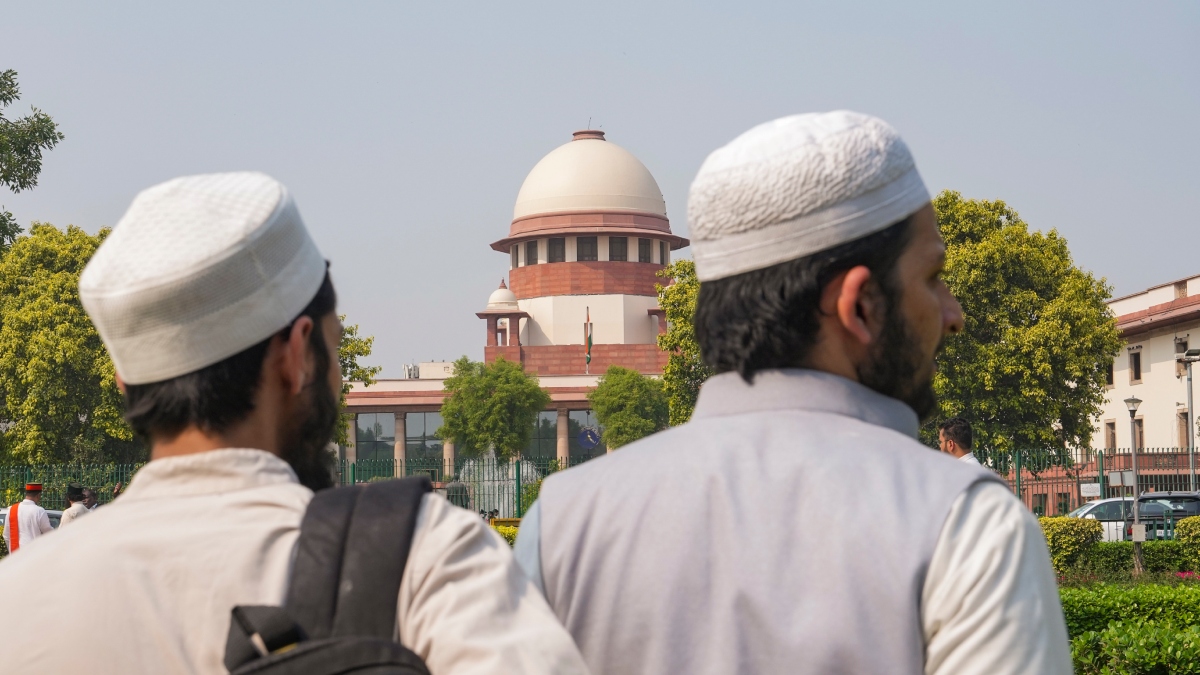Waqf is secular, not essential part of Islam, Centre argues in Supreme Court
 The Supreme Court questioned the Centre about the decision having non-Muslims as majority members in Waqf Council | PTI
The Supreme Court questioned the Centre about the decision having non-Muslims as majority members in Waqf Council | PTI
The Centre on Wednesday told the Supreme Court that though Waqf is an Islamic concept, it is not an essential part of the religion, as it defended the controversial Waqf Amendment Act.
“Waqf is undoubtedly rooted in Islamic tradition, but it is not integral to the practice of Islam. Waqf is nothing but just charity in Islam. Judgments show that charity is part of every religion and can happen for Christianity also. Hindus have a system of daan. Sikhs also have it,” argued Solicitor General Tushar Mehta on behalf of the Centre, appearing before Chief Justice of India B.R. Gavai and A.G. Masih.
Mehta emphasized the government's role as the custodian of public property for 140 crore citizens, stating that it has a constitutional obligation to prevent illegal appropriation of public land. “A false narrative is being pushed that people will be forced to produce documents or that Waqf properties are being indiscriminately seized,” he said.
Over the inclusion of non-Muslim members in Waqf Boards, Mehta countered that Waqf institutions perform secular functions and said, “Including two non-Muslims... what does that change? These boards do not engage in religious rituals.”
Responding to criticism that the amendment lacked broad support, Mehta said, “Just a few petitioners cannot claim to represent the entire Muslim community.” He noted that the Joint Parliamentary Committee held 36 sittings and received 96 lakh representations, with inputs from various Muslim organisations. “The final report was comprehensive, with accepted and rejected suggestions duly reasoned, and the law was passed after extensive parliamentary debate.”
On the issue of ‘Waqf by user’, where long-term usage is claimed to establish Waqf status, Mehta argued, “By definition, it means the property originally belonged to someone else, and usage created a perceived right. If the government owns a building, does it not have the right to examine its own property?”
He added that while revenue authorities can assess if a land is government-owned, they cannot adjudicate on the title itself.
On Chief Justice B.R. Gavai’s query that a Collector’s inquiry could result in Waqf properties being lost to the government, Mehta clarified, “The government must still file a title suit to claim ownership.”
Defending the clause that only a Muslim practicing for five years can create a Waqf, Mehta said, “Even under Shariat law, one must establish their Muslim identity. This doesn't mean you must pray five times a day or abstain from wine; it’s about affirming your faith.”
Drawing a distinction with Hindu religious trusts, Mehta argued that Hindu endowments are entirely religious, whereas Waqf properties include secular institutions such as schools, orphanages, madrasas, and guest houses.
He cited the Bombay Public Trust Act, which governs temples in Maharashtra and allows a non-Hindu chairman. He also referenced the Tamil Nadu Endowments Act, which permits the removal of a temple head for rule violations.
“Waqf boards have two offices, the Sajjadanashin, a spiritual leader, and the Mutawalli, an administrator. This law concerns only the administrative role, not spiritual practices,” Mehta explained.
The Solicitor General invoked the 1956 Hindu Code Bill, which codified Hindu personal laws, saying, “That bill affected personal laws of Hindus, Christians, Sikhs, Buddhists, and Jains, yet there were no objections to Muslims being excluded.”
The arguments remained inconclusive and will continue on Thursday as well.
India